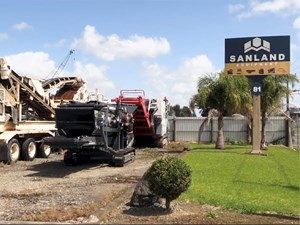Comment: Resilience the key to a changing climate
The road transport sector must come to grips with a future where addressing climate change is to become one of our most important industry objectives
Now, don’t get me wrong, I am not one to unnecessarily use words such as ‘emergency’ or ‘crisis’ to describe our environmental challenges, however, the reality is that climate change is upon us and transport will need to play its part to help New Zealand meet this challenge.

New Zealand, like most countries, has committed to achieving the goal of limiting global warming to less than 1.5 degrees as set out by the Paris Agreement. With the Zero Carbon Bill currently going through Parliament, we face a major challenge to reduce the country’s emissions to net zero by 2050.
While there is no specific emissions reduction target for the transport sector yet, there is little doubt that there will be. Transport currently contributes around 20% of New Zealand’s emissions and is the fastest growing sector as a proportion of our country’s overall emissions profile. Heavy transport, predominantly road freight, makes up around 24% of that or a full five percent of New Zealand’s emissions.
However, addressing climate change isn’t just about cutting emissions. The vast majority of the public focus remains centred on limiting temperature rise, a global objective New Zealand only has a tiny influence over. Far less emphasis is given to making our communities and infrastructure resilient for a future that could involve frequent dramatic weather events, more rainfall, and damaging sea level rise.
We know through experience of the Christchurch and Kaikoura earthquakes, the closing of the Manawatu Gorge and a number of big flood events in recent years that when disaster strikes, the road freight sector will keep the country moving.
The flexibility and adaptability of road transport cannot be matched by any other freight mode. It’s important, therefore, that the Government, in its desperation to reduce emissions and meet our international obligations, does not unnecessarily punish the very sector that will be critical to New Zealand’s future resilience.
I recently found it encouraging to be part of a panel discussion at the Road Controlling Authorities Forum in Wellington that specifically looked at the impacts of climate change in relation to transport and transport infrastructure. At a local government level at least, experts are turning their minds to how New Zealand must adapt to the impacts of climate change rather than just focussing on how to reduce emissions.
As a long, narrow, mountainous country that sits alone at the edge of the Southern Ocean, our transport infrastructure will always be susceptible to natural disruptions and extreme, highly changeable weather. That reality, you would think, would spur us on to invest in making our transport network as resilient as possible.
The fact that infrastructure development has basically stalled since this Government came to power is hard to fathom when one considers New Zealand’s future resilience challenges.
The anti-road lobby, that has the ear of this Government, uses emissions reduction as a policy platform to discourage investment in new roads. However, that ignores the reality of vehicle electrification that means road transport will be just as environmentally friendly as other modes in years to come.
So, let’s remove the politics, rhetoric, and demonisation of road users from the infrastructure debate. If history has taught us anything, it’s that we cannot afford to ignore the importance of a modern resilient roading network to keep the country moving when times get tough.
Find more trucks for sale in NZ
Keep up to date in the industry by signing up to Deals on Wheels' free newsletter or liking us on Facebook.





.jpg)


.jpg)








